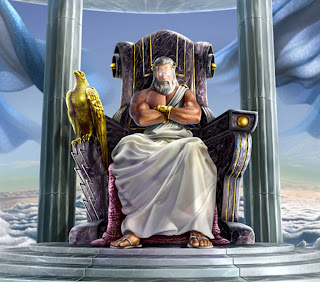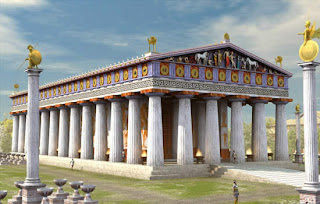The Power of Thunder

The Olympic Games are a celebration dedicated to Zeus, King of the Greek Gods. Zeus is the Lord of the Sky and Ruler of Mount Olympus and the gods and goddesses of the Olympian pantheon. Not an easy job for they were quite an unruly bunch! When the Olympians won the war against the ruling Titans, Zeus and his siblings wrested the throne from his father Cronus (Kronos) and the Olympian Age began. Zeus, God of the Sky: As Ruler of the Sky, the God Zeus is responsible for bringing (or not, if he so chose) rain, drought, and thunderstorms. No one dared challenge the authority of the mighty Zeus since he was prone to release his fearsome thunderbolts to express his displeasure . . . an awesome way to keep the peace and maintain order, but it worked for several centuries! The birth of Zeus was to be a fateful event . . . and it certainly was an unusual one! Sixth child of the ruling Titan Cronus and the Titaness Rhea, Zeus was the first to escape the fate of being ...



